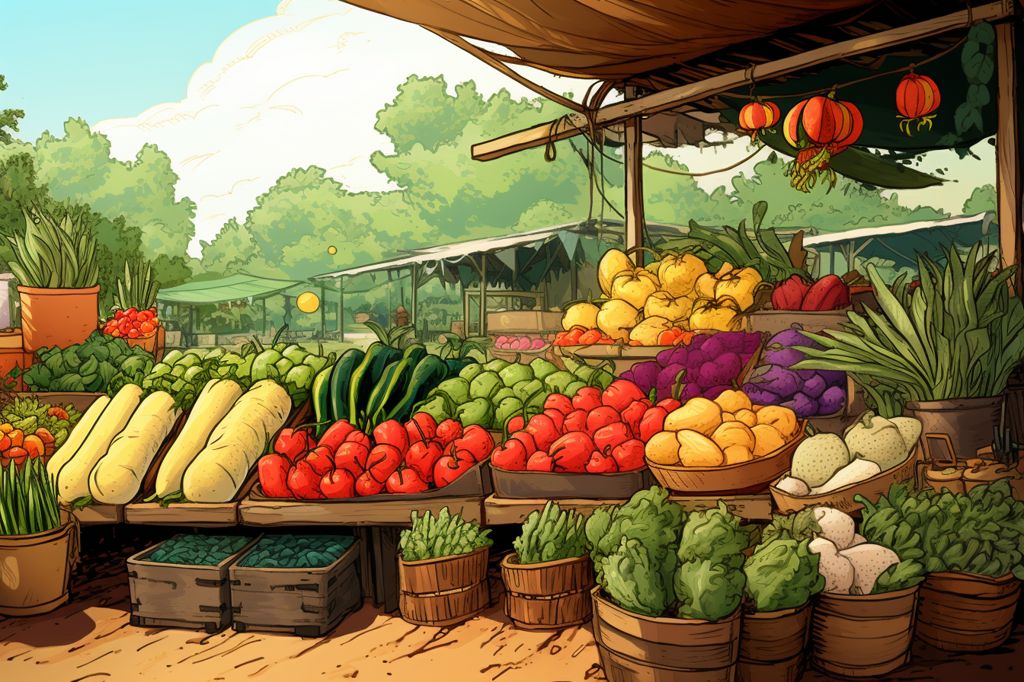The Western Cape Department of Agriculture has launched a digital platform called the Export Certificate Office System (ECOS) to revolutionize South Africa’s agriculture. ECOS is designed to ensure compliance in South African food and animal products, providing permit templates that align with import permits of different countries, making the export process more efficient while adhering to global standards. Additionally, ECOS allows for the tracking of products back to their originating farms, ensuring transparency throughout the supply chain. The platform has received positive feedback and is expected to expand throughout the country, enhancing the smooth movement of products and alleviating the administrative strain on rural producers.
The Veterinary Services division of the Western Cape Department of Agriculture recently introduced a groundbreaking digital platform, the Export Certificate Office System (ECOS). This unveiling event took place during the Western Cape’s first-ever Veterinary Week, which sought to underscore the significance of government veterinary services in the agricultural domain, especially in the area of export facilitation.
As Dr. Vincent Henwood, the Western Cape Department’s Head of the Veterinary Export Certification Office, explained, ECOS is a cutting-edge electronic system created to guarantee compliance in the South African food and animal products sector. This platform provides permit templates that are in line with the import permits of different countries, making the export process more efficient while adhering to global standards. Additionally, ECOS allows for the tracking of products, even those derived from animals, back to their originating farms, ensuring transparency throughout the supply chain.
Enhancing Agricultural Services with ECOS
Dr. Ivan Meyer, the Western Cape Minister of Agriculture, described ECOS as a customer-centric platform that improves the services provided by the Western Cape Government. By offering round-the-clock export facilitation services, ECOS dramatically shortens the duration required to apply for an export certificate, from several days down to just a few minutes. As the Western Cape is accountable for exporting 55% of South Africa’s primary agricultural products, Dr. Meyer anticipates that ECOS will aid in raising this figure to a minimum of 60%. This growth could potentially create around 22,000 new jobs in the industry, as exports are a substantial contributor to foreign exchange earnings.
Given South Africa’s diverse range of products, facilities, and processes, as well as its intricate food and export legislative system involving numerous authorities, synergies can form between these authorities as they frequently work on similar products within the same regions. Dr. Meyer highlighted the necessity for a systems-based approach to disease risk reduction and international trade in animal products, considering South Africa’s endemic diseases, abundant wildlife variety, and animal health system. He posits that ECOS can encourage communication and collaboration in a resource-limited setting.
Positive Feedback and Future Expansion
Heidi Fourie, a representative from La Montanara (Pty) Ltd, a cheese factory in Ashton, shared her favorable experience with ECOS. She mentioned that the platform significantly decreased the time required to secure an export certificate, which previously necessitated a substantial amount of paperwork that adversely affected product shelf life and quality. Although it was initially time-consuming to establish her company’s profile on ECOS, Fourie stated that it now only takes about five minutes to receive approval for an export certificate.
Dr. Meyer expressed gratitude for the valuable feedback provided by clients in the Western Cape, which has proven crucial in refining the ECOS platform. Their ongoing support and collaboration are essential as they collectively strive to transform compliance, traceability, and export control in South Africa’s food and animal products sector.
Regarding ECOS’s future, Dr. Meyer envisions the platform expanding throughout the country, with backing from the National Department of Agriculture, Land Reform, and Rural Development. This growth would establish a thorough system guaranteeing traceability and compliance on a national level, enhancing the smooth movement of products and alleviating the administrative strain on rural producers.
This year’s Veterinary Week wrapped up with visits to the Department’s Veterinary Export Certification Office in Milnerton and the Spar Western Cape Distribution Centre in Philippi, one of the Veterinary Export Certification Office’s most prominent clients.
ECOS signifies a considerable advancement in the South African agricultural industry, showcasing the impact of technology and collaboration in transforming compliance, traceability, and export control. By streamlining processes, enhancing communication, and offering transparency throughout the supply chain, this inventive platform holds the potential to significantly benefit producers, consumers, and the economy as a whole.
1. What is ECOS?
ECOS stands for Export Certificate Office System, a digital platform launched by the Western Cape Department of Agriculture to revolutionize South Africa’s agriculture.
2. What is the purpose of ECOS?
ECOS is designed to ensure compliance in South African food and animal products, providing permit templates that align with import permits of different countries, making the export process more efficient while adhering to global standards. Additionally, ECOS allows for the tracking of products back to their originating farms, ensuring transparency throughout the supply chain.
3. What are the benefits of ECOS?
ECOS dramatically shortens the duration required to apply for an export certificate, from several days down to just a few minutes. This growth could potentially create around 22,000 new jobs in the industry, as exports are a substantial contributor to foreign exchange earnings. ECOS also offers transparency throughout the supply chain, ensuring compliance and traceability in the food and animal products sector.
4. How does ECOS work?
ECOS provides permit templates that align with import permits of different countries, making the export process more efficient while adhering to global standards. It also allows for the tracking of products back to their originating farms, ensuring transparency throughout the supply chain.
5. How has ECOS been received?
ECOS has received positive feedback and is expected to expand throughout the country, enhancing the smooth movement of products and alleviating the administrative strain on rural producers.
6. How does ECOS enhance agricultural services?
ECOS is a customer-centric platform that improves the services provided by the Western Cape Government. By offering round-the-clock export facilitation services, ECOS dramatically shortens the duration required to apply for an export certificate, from several days down to just a few minutes.
7. What is the future of ECOS?
Dr. Meyer envisions the platform expanding throughout the country, with backing from the National Department of Agriculture, Land Reform, and Rural Development. This growth would establish a thorough system guaranteeing traceability and compliance on a national level, enhancing the smooth movement of products and alleviating the administrative strain on rural producers.
8. How does ECOS impact the South African agricultural industry?
ECOS signifies a considerable advancement in the South African agricultural industry, showcasing the impact of technology and collaboration in transforming compliance, traceability, and export control. By streamlining processes, enhancing communication, and offering transparency throughout the supply chain, this inventive platform holds the potential to significantly benefit producers, consumers, and the economy as a whole.









